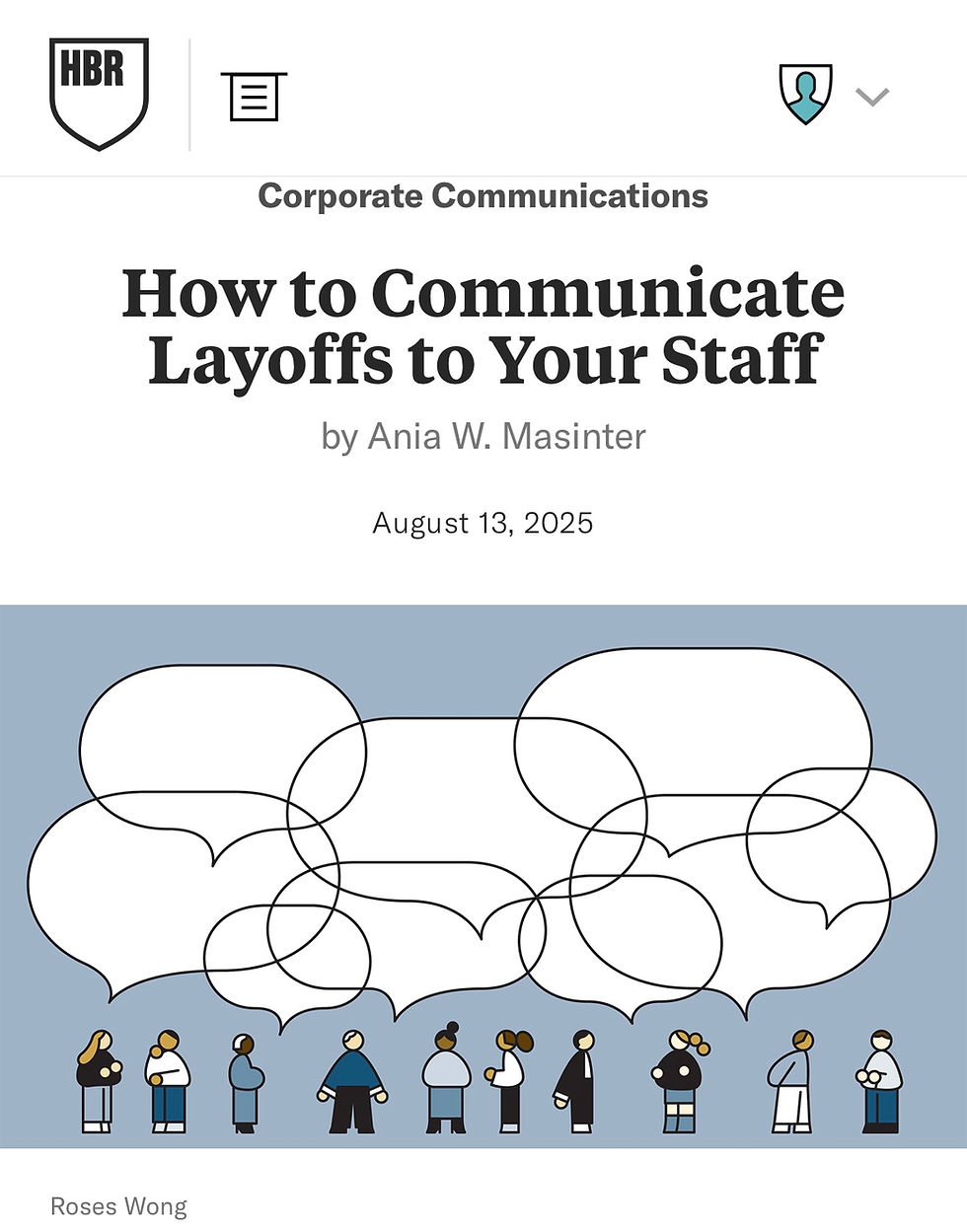Harvard Business Review: Should You Tell a Prospective Employer About Your Caregiving Responsibilities?
- Amii Barnard-Bahn

- Oct 20, 2025
- 2 min read

Picking up my phone, I once saw a text from a close friend: her mother could no longer live alone, she was preparing a bedroom, and she was in the middle of job interviews. “What do I tell them—if anything?” she asked. Many job seekers face the same question: should you disclose caregiving responsibilities to a prospective employer?
In my Harvard Business Review article, I share three strategies to help you make this judgment call and protect your options.
1) Research the role and culture before you disclose
Start with a realistic assessment of both your needs and the organization’s expectations. Look beyond glossy career pages to see how the company actually operates.
During the process, ask specific, outcome-oriented questions that reveal norms and flexibility:
How will success be measured (clear outcomes vs. subjective standards)?
Is the role remote, hybrid, or on-site—and are changes expected?
Are hours fixed or flexible?
Do team members work alternative schedules—and what does that look like in practice?
Clarity here helps you evaluate whether your caregiving needs are feasible within the role.
2) Decide what, when, and whether to say anything
Disclosure is ultimately a judgment call with risks on either side. You are not obligated to share personal health or family information during the interview process. If you do choose to raise it, timing matters. Many candidates wait until there’s strong mutual interest—often at the offer stage—when you can discuss the realities of the job alongside compensation, hours, location, and benefits.
Base your choice on your current needs and the predictability of your caregiving, not on worst-case hypotheticals. Your goal is to find a fit that enables you to deliver results without overcommitting.
3) If you disclose, script it—and keep it concise
Plan your message so it reinforces reliability and outcomes. A simple version might sound like: “I’m fully committed to delivering [key outcomes]. I occasionally have caregiving responsibilities during business hours, and I manage them with advance planning and coverage. When unexpected issues arise, I communicate promptly and make sure deadlines are met.”
Practice so you can state this calmly and briefly—then pivot back to how you’ll meet the job’s priorities. You can also “stress test” the fit by posing realistic scenarios (“If you call me at 11 a.m. and I’m at a doctor’s appointment, how is that viewed?”) and sharing how you’d handle them.
At its core, this is about trust and fit. Employers need to convey reasonableness around work/life balance; candidates need to do the homework to ensure expectations and support align with real life. No one should have to choose between caregiving and a job—but the role and culture must work for everyone.
Read the full article for examples, questions to ask, and language you can use in your next interview.


Comments